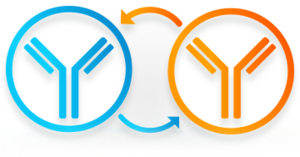In May 2019, the Canadian province of British Columbia introduced a policy of switching rheumatology patients to biosimilars [1]. Now, the province of Alberta is also considering plans to stop coverage of originator biologicals and switch patients to biosimilars for certain indications. The new policy, if introduced, will apply to the approximately 30,000 patients in Alberta living with inflammatory bowel disease (IBD) [2].
However, concerns have been raised in Alberta about the safety of such a policy to switch patients stable on their current treatment and in fact Canadian gastroenterologist associations do not recommend non-medical switching for such patients [3]. This issue has been further investigated by authors from the University of Calgary, Alberta, Canada [4].
Kaplan et al. argue that ‘the evidence to support the safety of non-medical switching in patients with IBD is of low to very low quality; in fact, existing data suggests a potential risk of harm’. They back this up by saying that ‘In a pooled analysis of randomized controlled trials, one patient would lose response to infliximab for every 11 patients undergoing non-medical switching’. In fact, they say that ‘even in the best-case scenario, assuming perfectly executed switching without logistical delays, [they] predict switching 2,000 patients with Remicade will lead to over 60 avoidable surgeries in Alberta’.
They argue that the quality of evidence on switching is ‘low to very low’ due to several reasons:
1. Existing studies are underpowered to determine non-inferiority in IBD patients, much less equivalence.
2. The requisite crossover and interchangeability studies necessary to answer critical questions regarding the risk of immunogenicity post-switching have not yet been performed.
3. Appropriate post-switch pharmacovigilance and surveillance studies have not been rigorously conducted and often fail to include adequate follow-up time or evaluation of meaningful endpoints.
The Norwegian NOR-SWITCH study found that there was ‘no difference in disease worsening between patients that transitioned to the biosimilar compared to those that continued treatment with the originator biological’ [5, 6]. However, despite this strong evidence for the safety of switching, Kaplan et al. point out that ‘the data in Crohn’s disease patients was far less reassuring with a treatment difference of −14.3% [95% CI: −29.3%, 0.7%], favouring continuation of infliximab originator’. They also describe a double-blind, prospective randomized controlled trial in 200 IBD patients from a single centre in Munich, Germany, which also favoured continuing on the originator infliximab, although they do point out that this study was underpowered to detect either non-inferiority or equivalence.
The Canadian Biosimilars Forum and Green Shield Canada, on the other hand, point out that ‘biosimilars have been used across Europe for more than a decade and at present, 13 countries support policies to implement biosimilar transitioning. This form of policy has been supported by scientific literature as being safe and effective. It can improve access to medicines by vastly reducing healthcare spending through replacing the use of reference biologicals with cheaper biosimilars’ [7].
Kaplan et al., however, argue that due to the ‘geographic barriers unique to a large province like Alberta, biosimilar switch data from centres in Europe are unlikely to approximate the Canadian experience’. Furthermore, they are also concerned that ‘non-medical switching has not been adequately studied in vulnerable populations such as children, pregnant women and elderly patients’.
Finally, the authors argue that since the originator, Remicade, has now been offered at the same price as the biosimilar, this ‘essentially negates any cost savings as a rationale for considering a non-medical switch policy’.
The authors conclude ‘that even in the best-case scenario, a non-medical switch policy will harm at least some patients with IBD; notwithstanding the logistical challenges and ethical implications of such a policy that comes with no clearly measurable cost savings’.
Conflict of interest
Several of the authors of the research paper [4] reported conflict of interest, including having received honoraria for speaking or consultancy from pharmaceutical companies. For full details of the authors’ conflicts of interest, see the research paper [4].
Related articles
Switching from reference to biosimilar infliximab in ankylosing spondylitis patients
Long-term follow-up of switching to biosimilar infliximab
References
1. GaBI Online - Generics and Biosimilars Initiative. Law and ethics of switching to biosimilars in Canada [www.gabionline.net]. Mol, Belgium: Pro Pharma Communications International; [cited 2020 Mar 13]. Available from: www.gabionline.net/Biosimilars/Research/Law-and-ethics-of-switching-to-biosimilars-in-Canada
2. GaBI Online - Generics and Biosimilars Initiative. Concerns raised as Canada’s Alberta plans to switch patients to biosimilars [www.gabionline.net]. Mol, Belgium: Pro Pharma Communications International; [cited 2020 Mar 13]. Available from: www.gabionline.net/Policies-Legislation/Concerns-raised-as-Canada-s-Alberta-plans-to-switch-patients-to-biosimilars
3. GaBI Online - Generics and Biosimilars Initiative. Canadian gastroenterologists issue biosimilar position statement [www.gabionline.net]. Mol, Belgium: Pro Pharma Communications International; [cited 2020 Mar 13]. Available from: www.gabionline.net/Biosimilars/General/Canadian-gastroenterologists-issue-biosimilar-position-statement
4. Kaplan GG, Ma C, Seow CH, Kroeker KI, Panaccione R. The argument against a biosimilar switch policy for infliximab in patients with inflammatory bowel disease living in Alberta. J Can Assoc Gastroent, gwz044, https://doi.org/10.1093/jcag/gwz044
5. GaBI Online - Generics and Biosimilars Initiative. NOR-SWITCH study finds biosimilar infliximab not inferior to originator [www.gabionline.net]. Mol, Belgium: Pro Pharma Communications International; [cited 2020 Mar 13]. Available from: www.gabionline.net/Biosimilars/Research/NOR-SWITCH-study-finds-biosimilar-infliximab-not-inferior-to-originator
6. Perks B. Randomized non-inferiority trial fails to find inferiority switching from infliximab originator to CT-P13 biosimilar. Generics and Biosimilars Initiative Journal (GaBI Journal). 2017;6(4):188-9. doi:10.5639/gabij.2017.0604.042
7. GaBI Online - Generics and Biosimilars Initiative. Praise for Canada’s BC after it adopts biosimilar transitioning policy [www.gabionline.net]. Mol, Belgium: Pro Pharma Communications International; [cited 2020 Mar 13]. Available from: www.gabionline.net/Policies-Legislation/Praise-for-Canada-s-BC-after-it-adopts-biosimilar-transitioning-policy
Permission granted to reproduce for personal and non-commercial use only. All other reproduction, copy or reprinting of all or part of any ‘Content’ found on this website is strictly prohibited without the prior consent of the publisher. Contact the publisher to obtain permission before redistributing.
Copyright – Unless otherwise stated all contents of this website are © 2020 Pro Pharma Communications International. All Rights Reserved.








 0
0











Post your comment